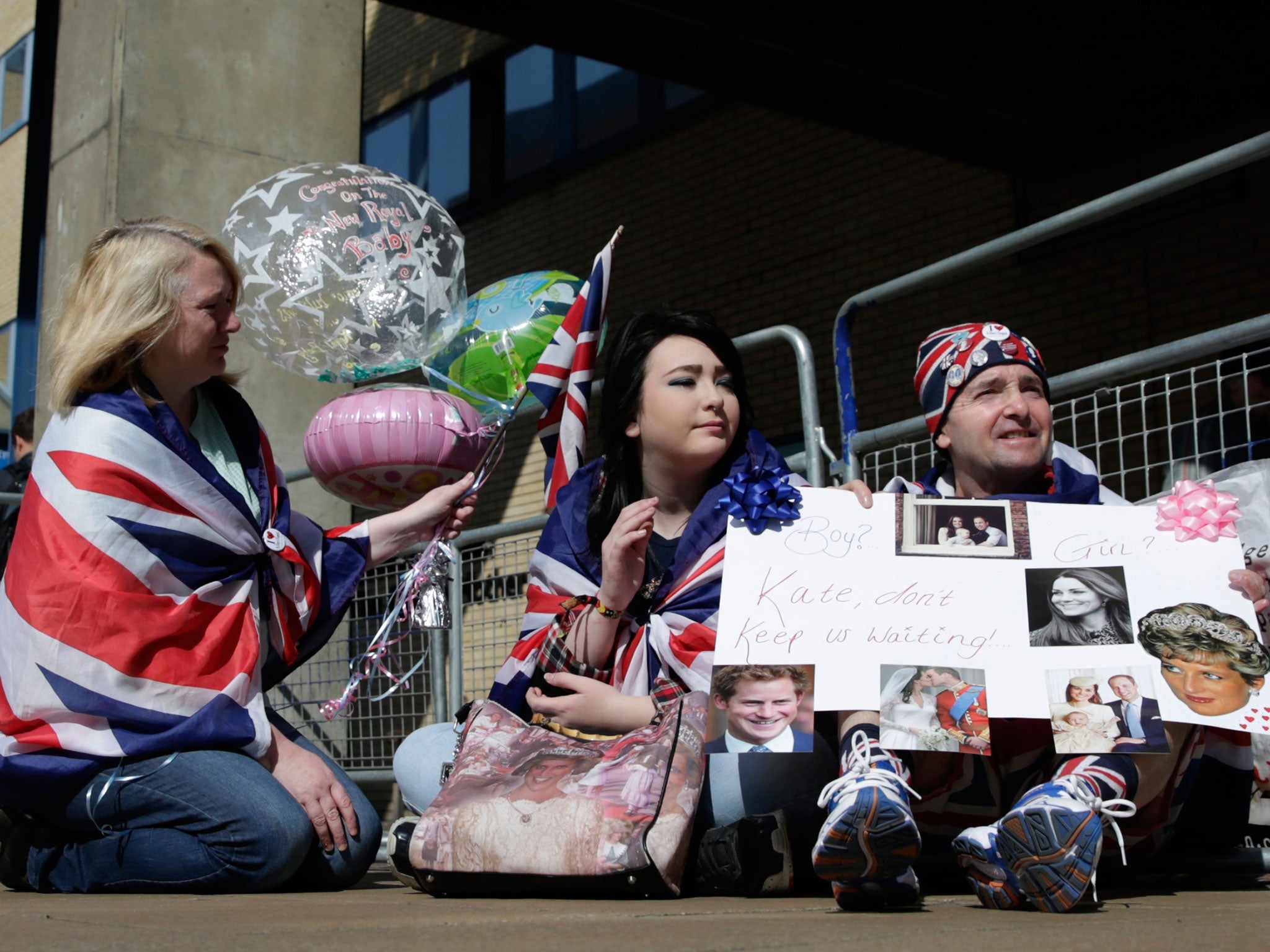Royal baby: The commodification of an unborn child
This baby already has its life mapped out to an extent before it’s been born


Support truly
independent journalism
Our mission is to deliver unbiased, fact-based reporting that holds power to account and exposes the truth.
Whether $5 or $50, every contribution counts.
Support us to deliver journalism without an agenda.

Louise Thomas
Editor
One of my favourite books I read to my daughter is called Zog, by the author of The Gruffalo, Julia Donaldson, because it features a princess who rejects her life “prancing round the palace in a silly frilly dress” and instead becomes a doctor.
The book is a modern-day antidote to the traditional fairy-tale story arc of: princess is born, wears a dress and later marries a prince, perhaps with the odd sleeping on a pea in between. How depressing, then, that the commentary around the Duchess of Cambridge’s baby, whose birth is imminent, is stuck in the Middle Ages.
Retail experts, went a story in The Daily Telegraph, believe that if the Duchess gives birth to a girl, she will bring £1bn to the UK economy – more than if the new baby is a boy. Why? Professor Joshua Bamfield, director of the Centre for Retail Research, explained that while “there isn’t as much excitement when it’s the second baby” – yes, little one, thanks to primogeniture we cannot be too thrilled at your arrival because you’ll always be the spare in the Royal Family – “but a girl would have the potential to boost the fashion industry”.
Wow, does this mean that Kate and William already have their second-born child signed up to an internship with Stella McCartney? That’s some forward planning! Oh, sorry, I am mistaken. According to Professor Bamfield: “A princess would be able to set trends throughout her life, which will be great for the people who designed her clothes or those who can make quick knock-off copies.”
I don’t think I have read such a joyless sentence. This baby already has its life mapped out to an extent before it’s been born – we know he or she will be fourth in line to the throne and is unlikely to ever have to work at Poundstretcher. But predicting that a princess might be setting fashion trends is stretching it, surely. Not only does it place an awful lot of emphasis on the fact that the baby’s mother has a good eye for a dress – something which I am not sure is hereditary – it sends a grim message about the “value” of a girl to this kingdom, as if she were a character in the pages of a Ladybird book.
Just because the Royal Family costs the taxpayer money, must we commodify a child who, at the time of writing, remains in its mother’s womb? Is the best she can hope for, this first British princess born in the 21st century, to be merely a fashion icon whose daily duties include looking nice and boosting the economy? This commercialisation of a princess is perhaps not what Walter Bagehot had in mind when he said that one of the strengths of the British monarchy was that it was merely “decorative”.
I am sure the Duke and Duchess, who seem a very forward-thinking couple by royal standards, will have higher aspirations for their daughter – or son – even within the confines of palace life. Perhaps this princess, if it is going to be a princess, could follow in her father’s and uncle’s footsteps and join the armed forces?
Maybe she could become a doctor, like the princess in Zog? Just because some of the women in this baby’s extended family – such as Beatrice and Eugenie, daughters of the Duke of York – don’t work very hard, doesn’t mean all female royals must be there for decoration alone.
There will be some republicans who do not care about the royal baby’s future career. I am no arch-monarchist, but I do care about the status of women – even princesses – in our society, because of what it means to all women and girls. I know the chances of this are slim, but I also believe that we should just regard this baby as a baby, be happy for the family, and let it choose its own life.
Join our commenting forum
Join thought-provoking conversations, follow other Independent readers and see their replies
Comments